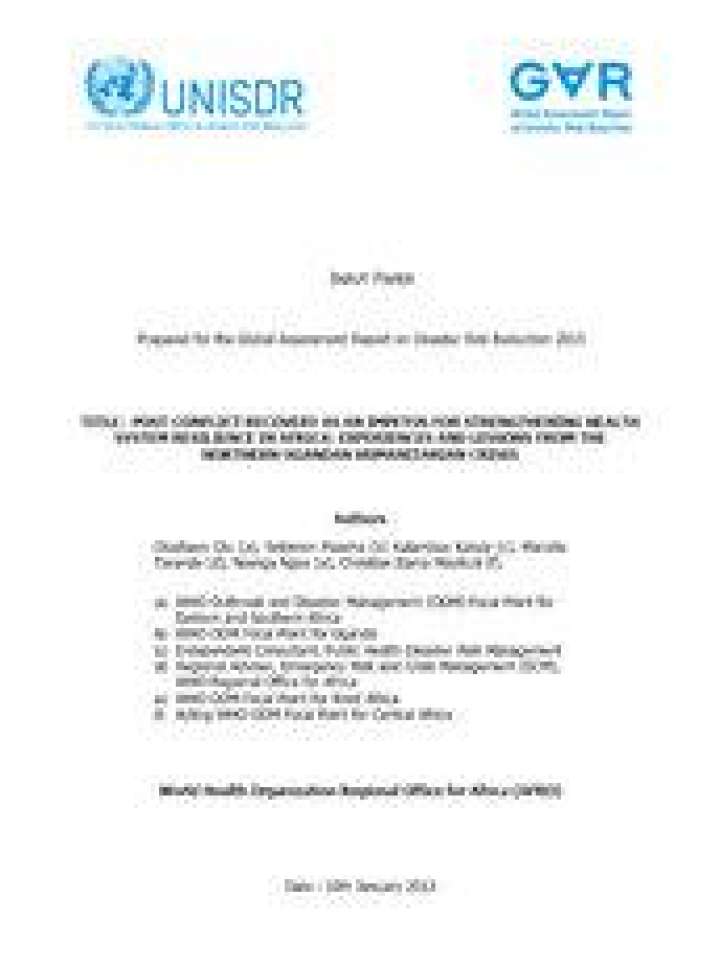Post-conflict recovery as an impetus for strengthening health system resilience in Africa: Experiences and lessons from the Northern Ugandan humanitarian crises
This paper discusses the post-conflict health system recovery process, including integration of disaster risk reduction (DRR) into health recovery interventions, its strengths, challenges and lessons learnt. It seeks to inform the post-2015 Hyogo Framework for Action (HFA) post-conflict/disaster health system recovery agenda in Africa.
The authors offer the following recommendations:
- A health system recovery framework which would shape future health system recovery efforts in Africa is required. Such a framework should be based on durable and realistic Africa-specific solutions which uses appropriate local technologies for health systems recovery.
- A health system-based approach should be used for health disaster risk management to ensure that elements of health systems strengthening, recovery and resilience building are integrated into emergency health programmes right from the onset of an emergency.
- Development of detailed recovery strategies and plans are prerequisites for effective health system recovery and provisions for its development must be included in the overall health disaster risk management framework of African countries.
- Health recovery strategies and plans should describe and prioritise actions and activities which are required to restore normalcy within the health sector and identify funding sources and mechanisms.
- Health resilience building and disaster risk reduction are broad processes which should involve all health sector partners (both humanitarian and development).
- Cross-cutting issues such as gender, HIV/AIDS, mental health, reproductive health, age, equity, human rights and the right to health should be mainstreamed into health system recovery strategies and plans.
This document is an input paper of the 2015 Global Assessment Report on Disaster Risk Reduction.
Explore further
Country and region
Afghanistan
